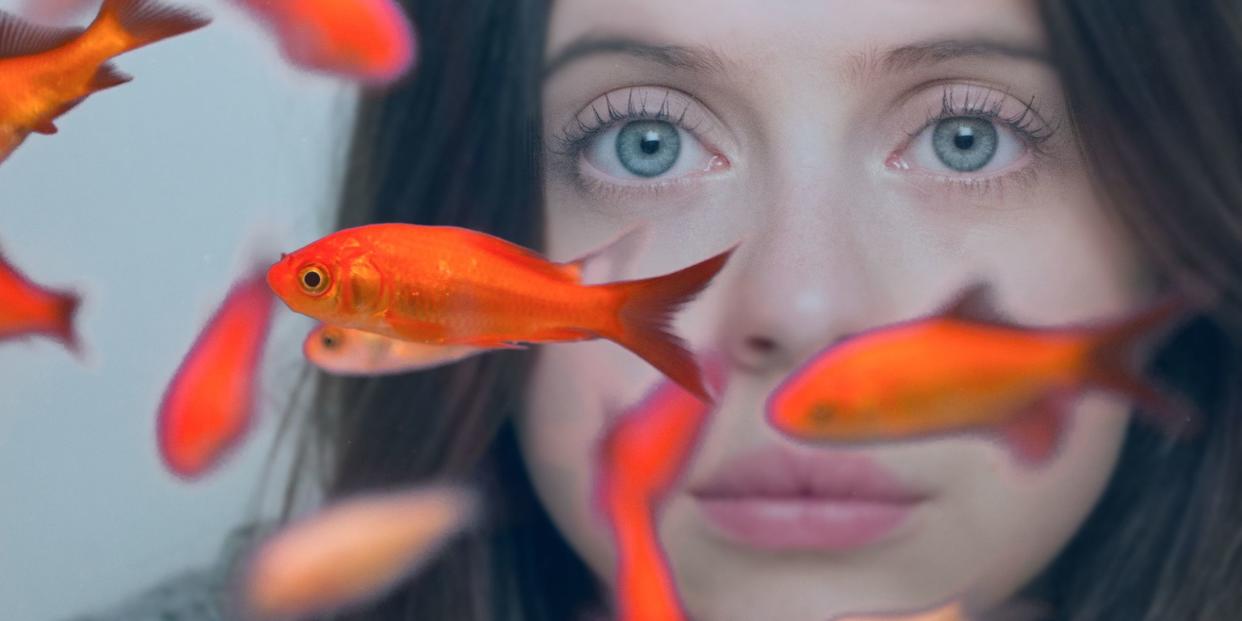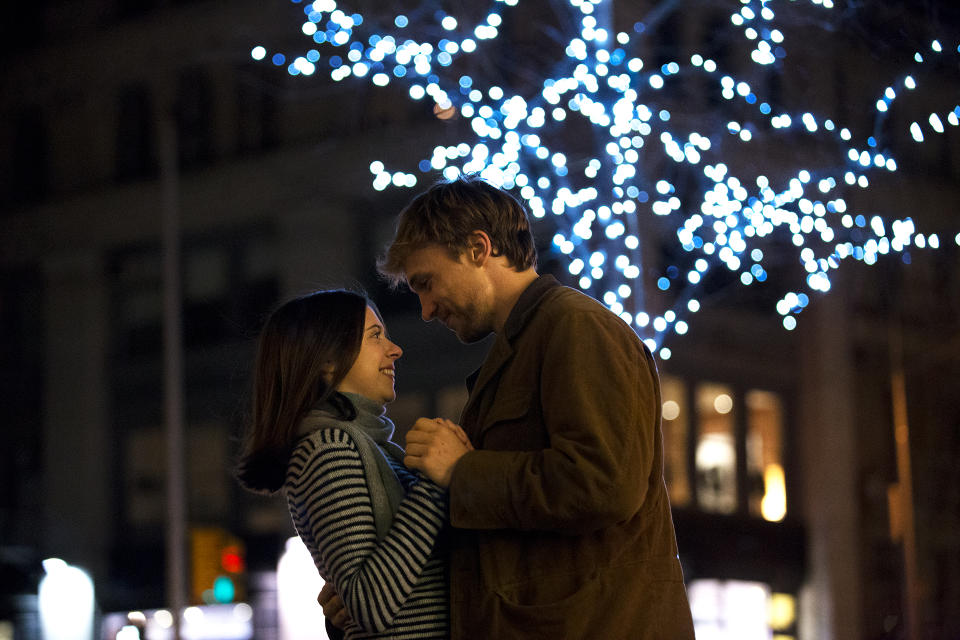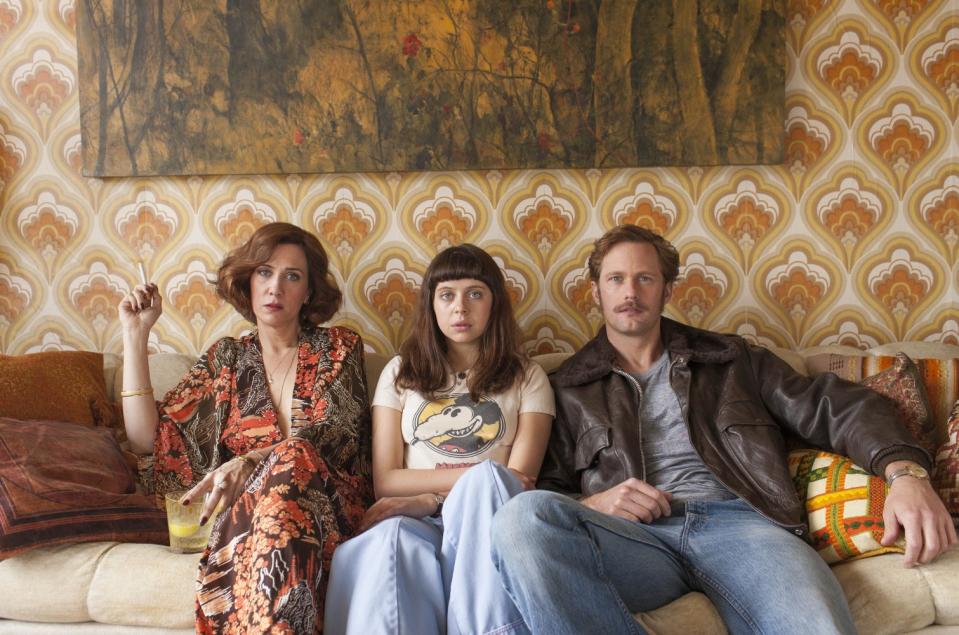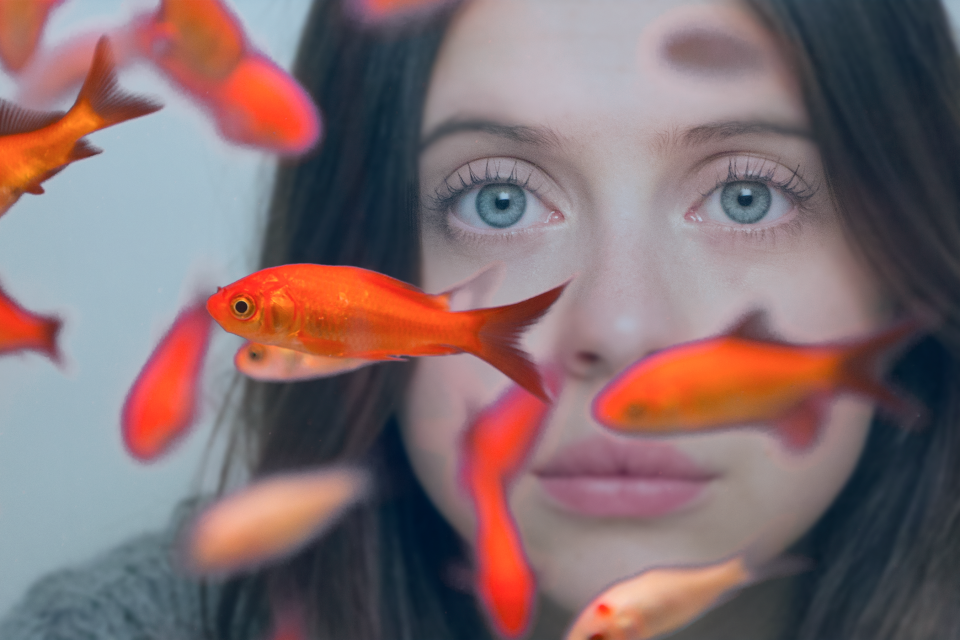Bel Powley on Getting Naked, Having a Thick Skin, and How Men Are Really Annoying

Falling in love with Bel Powley is easy. Just ask anyone who watched The Diary of a Teenage Girl. In that 2015 indie film, the English actress played Minnie Goetze, a 15-year-old tangled up in hormones and her mother's boyfriend (played by Alexander Skarsgård)-well, perhaps "boyfriend" isn't quite the right word for that very-much-a-man.
Those enchanted by Powley's easy charisma and easier-to-read face will find 2017 somewhat of a bonanza: She'll appear in no less than five films this year. ("That's always how it kind of happens," she told us, "they all start coming.") Six, actually, if you count Carrie Pilby; festival circuit diehards may have seen it last year, but the movie is now on screens proper, as well as on VOD. Powley plays the title character, an academically gifted 19-year-old and steaming-fresh Harvard graduate (she skipped three years of school thanks to a monster IQ) with not that great a grip on the whole "people" thing.
ELLE.com got on the phone with Powley to talk socially inept and precocious teens, how she developed a thick skin (getting naked on screen helped), and how men are annoying. Plus, see below for an exclusive clip from the film.
Carrie's therapist gives her a to-do list because she's so detached from her life. What would be on yours?
There was a really big thing that was on my do-list that I've actually done now and been really proud of. I wanted to have a hand at directing and producing my own thing, and last year I took six months off and directed a short film. It's called Little Heart, and my best friend wrote it. It's about her experience [being] bipolar-we were kind of annoyed by how the industry portrays young women with mental health issues, so she wanted to show an honest depiction of what it actually feels like to experience that.
It follows one girl over 48 hours and she goes into a manic episode and comes out the other side. We shot it in six days in the UK. It was amazing, and we've nearly finished it now. It was really nice to create something from the bottom rather than, as an actor, constantly slotting into a little pool in someone's big game of chess.
Because of her high IQ and all of her achievements, and being away from her family, Carrie has a real fish-out-of-water thing happening. How do you relate to that?
I do relate to that...more because of my age. I think that most 20-somethings can relate to that feeling. I'm lucky to be doing what I wanna do, but I'm still searching for what makes you tick. And I think Carrie has a really bad case of that.

She's also thinking a lot about happiness. Is that something that you also think about? What makes you happy?
I think the problem that Carrie has is this: At the beginning of the film, she kind of treats life as an equation. So she thinks, if I have this element, if I have this element, and add this element, that's going to bring me happiness. That's also something you learn when you're young and [at] the beginning of life and growing up: That's not really how happiness works. This sounds really soulful, but it has to come from within. You need to be happy with yourself and who you are before external factors can affect your happiness. And I think that's where she's going wrong.
There are lots of external factors to think about as an actress. How do you deal with constantly being scrutinized?
You have to have really thick skin. Art is obviously there to be criticized and there to be taken in different ways. Not everyone is going to like what you do. If you go to a gallery and look at a painting, you don't necessarily like it or hate it or love it. People have different opinions. With movies, we should never expect everyone to just adore and love [a] film. But when you are your own commodity and you're selling yourself, then it does get difficult and it can get confusing and it can get personal and it can get hurtful. So you do have to have thick skin.
I feel kind of lucky that I started in that movie I did, Diary of A Teenage Girl, where I literally and figuratively laid it all bare. [laughs] Because I started by being like, 'Oh hey! Here I am. Take it or leave it. You can like the film, you can not like the film. I'm naked!' I think that really helped me to develop that thick skin quite early on. But Carrie has an element of that, too. Carrie doesn't give a shit about what people think about her. She doesn't care. But maybe too much, because that's why she has no friends.

She thinks about things differently than most people she knows. What part of Carrie drew you to her when you read the script?
Her social ineptness. Playing weird and quirky characters, like those with weird nuances, I find very interesting. It was also just her heightened intelligence. It was actually a challenge speaking like Carrie, because her processing her thoughts is a million times quicker than the way that I speak because she's hyper-intelligent. So it's fun to try and get into that side of her brain. And, also, she's emotionally unintelligent, so that dichotomy was interesting to explore.
Because of her age, men are constantly trying to put her in her place. Is that something you relate to? Your breakthrough role came when you were quite young.
I think the reason that they treat her like that is because they can't handle it. They can't handle her intelligence, and the men that say that to her or treat her like that, like [Carrie's professor (Colin O'Donoghue)] and also Jason Ritter's character ["Matt"]. It's because they can't handle that she's got their number-she can see right through them. And so they try to put her down and belittle her to make themselves feel better. That's also the most frustrating thing when you're a young person, for someone to patronize you, because it doesn't help with your growth.

This movie could be subtitled 'Men Are Annoying.' Pretty much all of the men in the movie also are sorting their stuff out.
That's something I really love about the film. All the men, they're really annoying. They're flawed! It's not one of those movies where the girl is searching, and she finds the nice guy and ends up with him, and they kiss at the end and it's all happy. In the very beginning when I first met [director] Susan Johnson, I was like, 'I'm not doing this film if you want her to get with this guy at the end.' The idea isn't that she meets him and then realizes that he's her one true love or something, and she makes out with him and everything's fine. She's maybe made a friend, but he's not going to be her boyfriend. The movie shouldn't end by turning the message [into] 'You can get a boyfriend and everything's fine.' That's not what it's about. That's not how she finds her happiness.
Carrie Pilby is now in theaters and on digital on demand from The Orchard.
You Might Also Like

